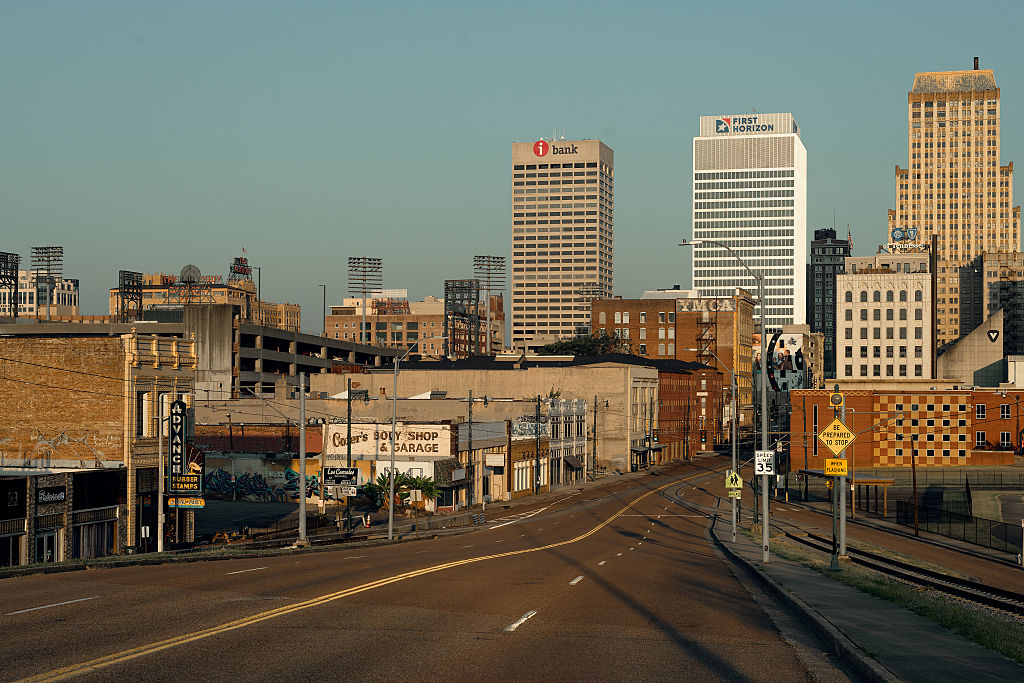The federal crackdown on crime in Memphis has officially begun.
Attorney General Pam Bondi announced Tuesday morning that “our operation in Memphis is now underway, and we’re just getting started,” saying that nine arrests had already been made and two “illegal guns” seized.
Bondi said 219 officers were “special deputized,” or granted federal law enforcement authority, and a “Joint Operation Center” had been set up. She thanked multiple agencies, including the Federal Bureau of Investigations (FBI), Bureau of Alcohol, Tobacco, Firearms and Explosives (ATF), and the U.S. Marshals Service.
[time-brightcove not-tgx=”true”]
Local officials and residents have been preparing for the arrival of federal troops since President Donald Trump signed a memorandum roughly two weeks ago directing that agents from multiple agencies and members of the National Guard be sent to Memphis to address what he has called “tremendous levels of violent crime” in the city.
The specifics of the deployment—including how many people it would include and precisely when it would occur—have remained somewhat unclear, however. Tennessee Governor Bill Lee said in a news conference on Friday that the operation would begin this week and involve personnel from 13 federal agencies, as well as 300 Tennessee Highway Patrol troopers.
The operation, the Governor said, will occur in phases over the “next weeks and months.” He added that “planning has been underway for months.”
As of Tuesday, as Bondi reported the initial arrests, there appeared to have been no confirmed sightings of the National Guard in Memphis.
How state and local officials have responded to Trump’s plans
Unlike most of the other cities where Trump has deployed the National Guard—or threatened to do so—Tennessee’s Republican leaders have shown support for the federal crackdown in Memphis. Along with Lee, Tennessee Sens. Marsha Blackburn and Bill Hagerty showed their support in the Oval Office when the President announced the creation of the Memphis Safe Task Force to address crime in the city through a state and federal collaboration.
On Monday, Lee called Memphis a “world-class city with an historic opportunity to address its crime challenge” and thanked the President for “providing every federal resource needed so that all Tennesseans can live in a safe neighborhood.” He said the National Guard would act to support local and state authorities, and would not have the authority to arrest people.
Democratic Memphis Mayor Paul Young has been warier of the coming deployment, saying earlier in September that he was “certainly not happy” with Trump’s plan to send National Guard members to the city. Speaking on Friday, however, he indicated he would seek to use the “resources” coming into Memphis for the good of the city, while acknowledging the “passionate emotions” felt by members of the community who support or oppose the operation.
“As the leader of our city, my goal is to make sure that as resources come into our community we find ways to use them effectively and for the benefit of the residents of our great city,” he said.
The Memphis Police Department (MPD) reported this month that overall crime in the city was at a 25-year low in the first eight months of 2025. Murder was at a six-year low, while aggravated assault was at a five-year low and sexual assault at a twenty-year low, according to the department.
But the city is still experiencing higher rates of homicide and motor vehicle thefts than it was in 2019, according to a recent report from the Council on Criminal Justice, and multiple analyses of FBI data have found that the homicide rate in Memphis last year was among the worst in the country when compared to other major U.S. cities.
How activists and organizations have prepared to fight
Over the weekend, local and state nonprofits launched the “Free the 901” movement, a coalition of groups “standing against the proposed deployment of the National Guard to Memphis” whose name references the city’s area code, with protests in Memphis.
“History shows us that the makings of martial law often begin with tactics like this. The slow normalization of militarization, stepped-up deployments that blur the lines between emergency aid and occupation, and the erosion of ordinary civic protection,” one protester said at the press conference held before demonstrators marched in the city.
Last week, the ACLU of Tennessee sent a letter to Young and Memphis Police Chief C.J. Davis “demanding strict compliance” with the Kendrick Consent Decree, an agreement between the ACLU and the city dating back to 1978 that aims to protect the First Amendment rights of Memphis residents from interference by local authorities.
“Federal and National Guard involvement in local law enforcement doesn’t diminish these protections,” ACLU Tennessee Legal Director Stella Yarbrough said in reference to the decree. “In fact, it makes strict compliance more critical than ever. Memphis police cannot use federal coordination as a backdoor to conduct the very surveillance activities this decree was designed to prevent.”
The letter goes on to detail several ways in which the MPD is prohibited from working with federal law enforcement under the decree.
Local officials, as well as nonprofit and community groups, are also making efforts to educate residents about their rights and keep them informed about the imminent federal operation.
Shelby County Commissioner Erica Sugarman said last week in Washington, D.C., that she was conveying information from advocates in the nation’s capital based on their experience with the federal crackdown there.
The city of Memphis, meanwhile, launched a website where residents can log complaints and keep abreast of the presence of federal agents in the city.

